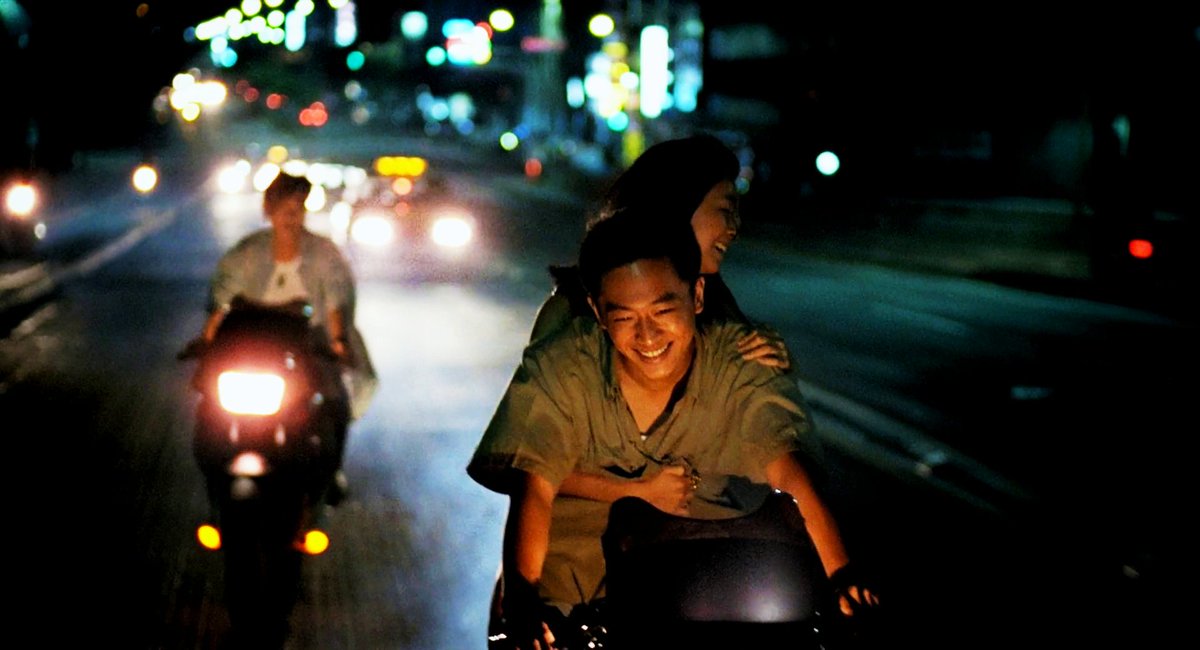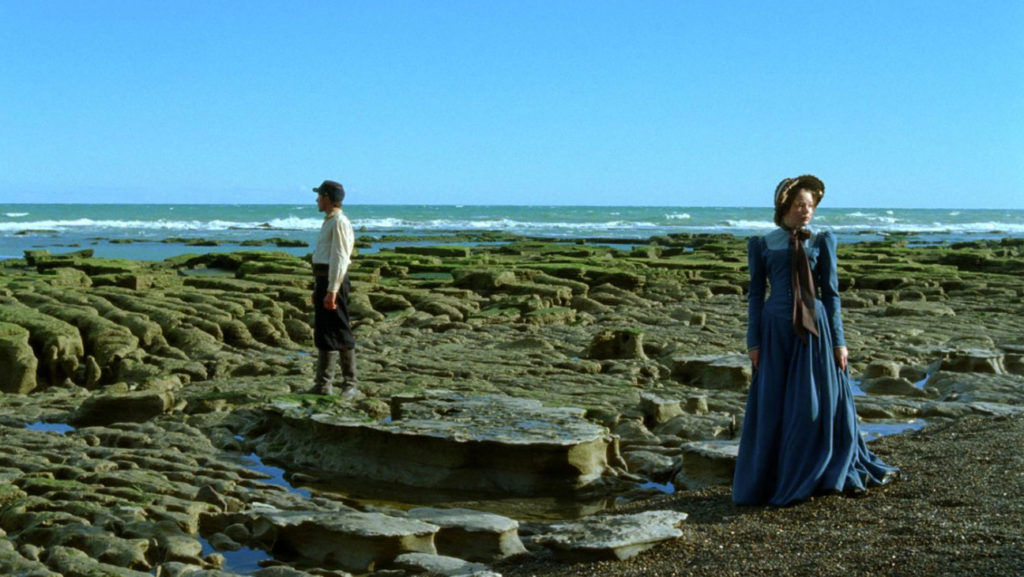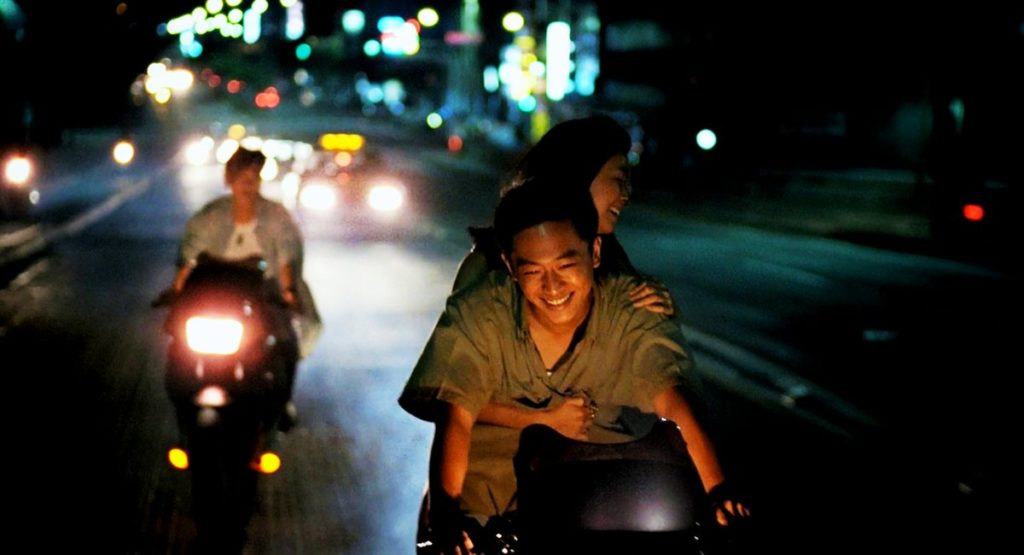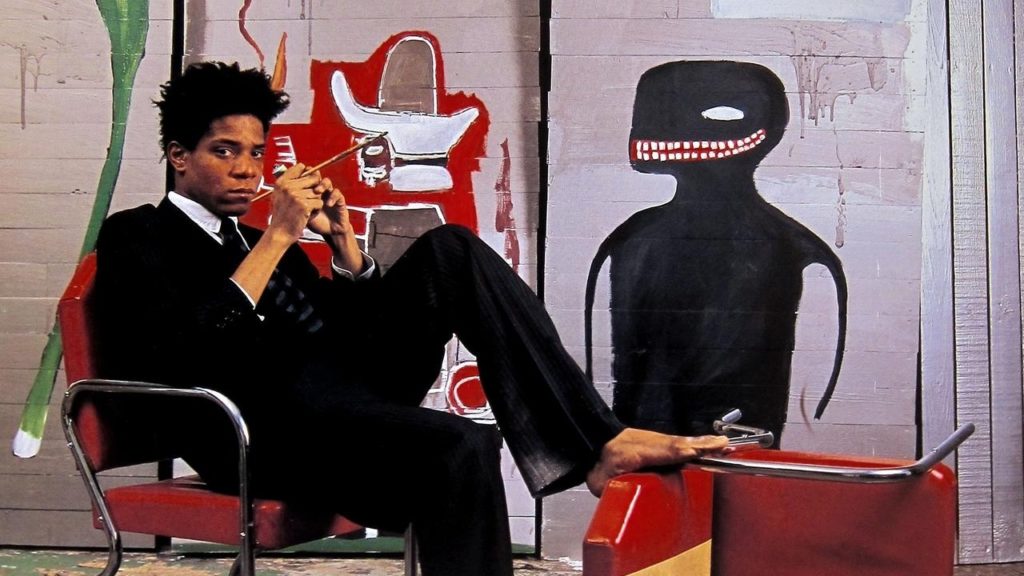
Our partner organization, Films from the Margin, operates to put on display a showcasing of films “from the margin,” often works that are difficult to find, lesser known, and considered hidden gems. From world famous filmmakers’ smaller, maybe earlier work to a surprising foreign marvel, Films from the Margin aspires to educate and inform viewers of cinematic treasures otherwise hidden by an immeasurable sea of content, while providing hours of gutsy, unique, unforgettable entertainment. This column will feature recommendations of films otherwise considered to be “from the margin,” as well as where one can locate them. For more information on Films from the Margin and how to get involved, drop us a line at filmsfromthemargin.ec@gmail.com.

Jauja (2014, Lisandro Alonso, Denmark/Argentina)
From Argentine auteur Lisandro Alonso, one of the defining figures of slow cinema in the twenty-first century, comes Jauja. Alonso crafts a haunting western starring Viggo Mortensen as Danish captain Gunnar Dinesen, sent to nineteenth century Argentina with his daughter Ingeborg (Viilbjørk Malling Agger). As they journey across the deserts and coastlines, Ingeborg’s blooming sexuality attracts the men stationed with Dinesen, and eventually she runs off with a young soldier named Corto. Dinesen chases after them, coming to discover that Corto has been killed and Ingeborg taken by natives. Jauja is captured with vibrant and lush colors and set with a classical 4:3 aspect ratio, creating an anachronistic, out-of-time feel. Mortensen, who is also responsible for the film’s mesmerizing guitar score, gives an intricate performance, frequently shifting between frenzied aggression, cool cunning, and despairing hopelessness. The script written by Fabian Casas and Alonso develops a plethora of situations for Mortensen to shine, transitioning from deadpan absurdism to surreal hypnosis with ease. The culmination of which is a uniquely reflexive and dreamlike tale about the presence of human desire in an alienating, apathetic world. –Julian Hart
Jauja is available for streaming on Kanopy, Topic, and MUBI. It can also be rented or purchased digitally on VUDU, Google Play, and YouTube.

Mille Soleils “A Thousand Suns” (2013, Mati Diop, Senegal)
Mati Diop, the actress made known through the films of certain auteurs like Claire Denis, turns her lens to Magaye Niang, the actor made infamous by Djibril Diop Mambéty’s Senegalese classic, Touki Bouki. Mille Soleils, set 40 years after the subsequent ending of Touki Bouki, follows the man behind the cowboy: no longer the powerful biker his fictional character once was, Magaye now works in a slaughterhouse, doing what he can to survive. The film follows Magaye as he looks back upon his past, reflecting on the decisions he has made since that point in time. The landscape, the people, the animals, the work, and the revolutionary causes may have all changed over the last 40 years, but Magaye has stayed put. He remains wanting to return to the life he once knew, to the friends who have now passed on or moved away, and to the stardom he once possessed, but it seems time has moved on too far. Diop expertly crafts fiction out of the actors her uncle once made notorious, weaving together a tale that celebrates Mambéty’s life and filmmaking, as well as cementing her position as a masterful filmmaker, all within a succinct 45 minutes. Mille Soleils is the nostalgic, lonely story of a cowboy who has outgrown the wanderer within him. –Aidan Collins
Mille Soleils is currently available for streaming on The Criterion Channel.

Rebels of the Neon God (1992, Tsai Ming-Liang, Taiwan)
A nebulous sketch of Taiwanese youth in the 90s, Rebels of the Neon God follows Hsiao-Kang (Lee Kang-Sheng), a quiet and studious boy who becomes infatuated with local delinquent Ah Tze (Chen Chao-jung). Caught off guard by the strength of this newfound obsession, poor Hsiao-Kang is paralyzed: all he can do is watch silently as Ah Tze romances a beautiful girl, robs arcades, and wreaks havoc around Taipei. These teenagers are embarrassed by their need for connection, yet they need it all the same, finding it easier to trash each other’s bikes than to say hello. Director Tsai Ming-Liang understands that desire is sharpened by solitude; the absence of the object of affection amplifies the ache. Accordingly, much of the runtime is devoted to watching Hsiao-Kang and Ah Tze alone, doing nothing. They languish in their bedrooms, staring at the ceiling, touching themselves, smoking, just finding ways to while away the hours. Here, alienation is exponentially amplified by queerness and modernity, and folks like Hsiao Kang are reduced to a shadow. Although Rebels appears to be a very ‘small’ film at first glance, I’ve found that Tsai’s works behave like pebbles tossed in a vast lake: they continue to echo long after the initial impact, ripples growing larger and larger until they have altered the entire surface. Their deeper truths often arrive in my subconscious a good while after the first watch. Give yourself over to the pleasure of texture and rhythm — let the meaning find you later. If you allow Rebels of the Neon God to reverberate inside you for some time, its beauty will only grow. –Matt Pifko
Rebels of the Neon God is now streaming on MUBI. It can also be rented or purchased digitally on Youtube, Google Play, and VUDU.

Jean-Michel Basquiat: The Radiant Child (2010, Tamra Davis, United States)
As is the case for every artist who never reached the extent of their full potential, the public’s fascination with their life and who they really were lies in all that can never be known. Jean-Michel Basquiat, considered by many one of the great contemporary artists of New York’s downtown scene, is one such artist. Celebrated for his pioneering vision and undeniable brilliance, his life and legacy primarily exist through the eyes of others; due to his reclusive nature and overall reluctance to outside perception, he has always been called an ‘enigma’ by most. But the art world was (and remains) a predatory machine, one that thrives off the consumption of artists; Basquiat was not spared from this, the revolutionary power of his work often becoming cheapened and trivialized. But in 2010, Basquiat still found a way to speak for himself: Tamra Davis, filmmaker and friend of the artist, released a series of long-held archival footage she filmed at her apartment in 1986. Consisting of casual conversation between the two, what resulted is The Radiant Child, the personal portrait of a man who’s always been summarized by others. Cool, collected, and entirely Capricornian, the artist talks of his life, his art, and the world that simultaneously scrutinized and obsessed over him. His charm and passion are so evident, you are never uncertain of who he really was, nor his own belief in himself. Illuminating and heartbreaking, The Radiant Child is the story of Basquiat from its very source — all while its narrator never even leaves the couch. –Natalie Michaud
Jean-Michel Basquiat: The Radiant Child is currently available to stream on The Criterion Channel. It can also be found on Sling (via subscription), Amazon, and Kanopy.